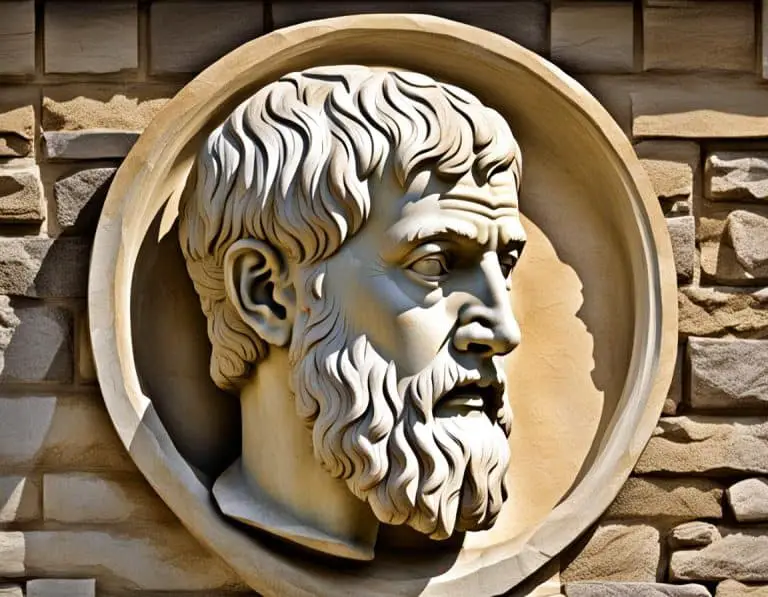TeacherStudent Relationship in Plato’s Philosophy
In Plato’s philosophy, the relationship between the teacher and the student is portrayed as one of utmost importance. The teacher is seen not just as an instructor imparting knowledge, but as a guide and mentor who plays a vital role in shaping the moral character and intellectual development of the student. Plato believed that the teacher should not only teach academic subjects but also instill virtues and values in the student, guiding them towards the pursuit of truth and wisdom.
Furthermore, Plato emphasized the need for a strong bond of mutual respect and trust between the teacher and the student. The teacher is expected to act as a role model, embodying the ideals of wisdom, integrity, and moral excellence. In turn, the student is encouraged to approach the teacher with humility, openness, and a willingness to learn. This reciprocal relationship fosters a sense of camaraderie and mutual growth, creating an environment conducive to the cultivation of knowledge and virtue.
Ideal Educator
Plato’s philosophy emphasizes the critical role of the educator in shaping the minds and characters of the youth. According to Plato, the ideal educator must possess a deep understanding of truth and virtue, guiding students towards knowledge and moral excellence. The educator should act as a mentor and role model, instilling wisdom and fostering intellectual curiosity in their pupils.
In Plato’s educational legacy, the ideal educator is not merely a dispenser of information but a facilitator of learning and growth. This educator should embody qualities of patience, empathy, and a genuine desire to help students develop into well-rounded individuals. By nurturing the intellectual and moral development of their students, the ideal educator plays a key role in preparing the next generation to become responsible citizens and seekers of truth.
The Role of Physical Education
Physical education played a significant role in Plato’s philosophy of education. He emphasized the importance of physical activity in developing a well-rounded individual. In Plato’s ideal educational system, physical education was not just about exercise, but also about cultivating discipline, strength, and teamwork among students.
Plato believed that physical education, particularly gymnastics, was essential in shaping the body and mind of a student. Through rigorous physical training, individuals could learn perseverance, self-control, and resilience. Gymnastics, according to Plato, was a means to achieve harmony between the body and the soul, preparing students for the intellectual challenges they would face in their academic pursuits.
Importance of Gymnastics
Physical education, particularly gymnastics, held a paramount importance in Plato’s educational philosophy. He believed that physical activity was essential in fostering a healthy body and mind, emphasizing the development of strength, agility, and coordination through exercises and training. For Plato, the integration of gymnastics into the curriculum was not merely about physical well-being but also about cultivating discipline, self-control, and perseverance in students.
In Plato’s view, gymnastics played a crucial role in shaping the character of individuals, teaching them virtues such as resilience and teamwork. By engaging in physical activities such as wrestling, running, and jumping, students were not only improving their physical fitness but also honing their mental fortitude. Plato believed that a sound mind resided in a sound body, and that through gymnastics, individuals could achieve a harmonious balance between their physical and intellectual capacities.
Plato’s Views on Music and Arts in Education
Plato believed that music and arts played a crucial role in education, shaping the character and soul of individuals. He saw music as a powerful tool for instilling harmony and discipline in the minds of students. According to Plato, certain musical modes could influence emotions and behaviors, emphasizing the importance of exposing children to the right kind of music from an early age to cultivate virtue and morality.
Furthermore, Plato stressed the significance of arts in education, considering them as a means to develop creativity and critical thinking skills. He believed that through the study of arts such as poetry, painting, and sculpture, individuals could access higher realms of knowledge and truth. For Plato, art was not merely for entertainment but a form of contemplation that could lead to intellectual and spiritual enlightenment.
Harmony and Discipline
Harmony and discipline were two fundamental aspects of Plato’s educational philosophy. Plato believed that a harmonious balance between body and mind is essential for a well-rounded education. He emphasized the importance of instilling discipline in students through rigorous mental and physical training.
In Plato’s view, a disciplined mind was necessary for the pursuit of knowledge and truth. By cultivating virtues such as self-control, perseverance, and respect, students could achieve harmony within themselves and the wider society. Through the combination of discipline and harmony, Plato sought to shape individuals who were not only intellectually astute but also morally upright.
Related Links
Why Plato’s Educational Legacy Still Matters Today
What Makes Plato’s Educational Legacy Timeless
